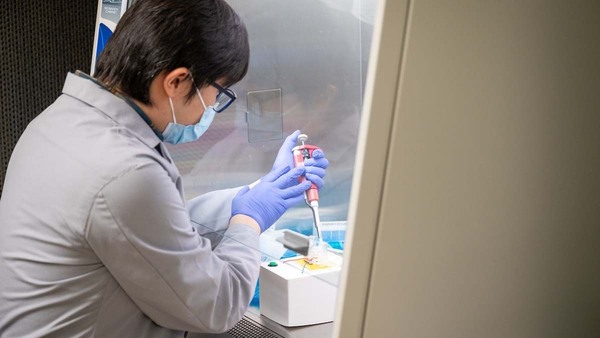

As Notre Dame’s laboratories went into hibernation in March, many researchers from various fields — chemistry, engineering, political science, psychology, education — looked for ways to pivot their own work toward furthering knowledge into how COVID-19, the disease caused by the SARS-CoV-2 virus, works, how it’s transmitted, and how our country and world can cope with the unexpected pandemic crisis. They decided to jump into the research at different times, but for the same reason: They knew they could help.
The way states respond to the pandemic — rather than the population epidemiology — interested Jeff Harden, the Andrew J. McKenna Family Associate Professor in the Department of Political Science and a faculty fellow in the Rooney Center for the Study of American Democracy. He chose to expand his research agenda on what is known as policy diffusion. The concept describes how and why states adopt similar policies over time. With the clear tension between health risks and economic risks, Harden knew that a focus on policies because of COVID-19 would reap important findings. Which states are leaders? Which are followers? And how does the relationship occur?
To delve into policy diffusion, Harden and his team are “scraping” government websites and social media accounts by writing code that quickly scans the sources. He and his collaborators recently received a RAPID grant from the National Science Foundation (NSF) to continue the work through the summer, at which point he will be able to evaluate his findings.
“I hope that the research will be especially useful for understanding which policies are most effective,” Harden said. “There’s such a clear tension between health risks versus economic risks.”
To read the full story, click here.
Originally published by at news.nd.edu on June 15, 2020.